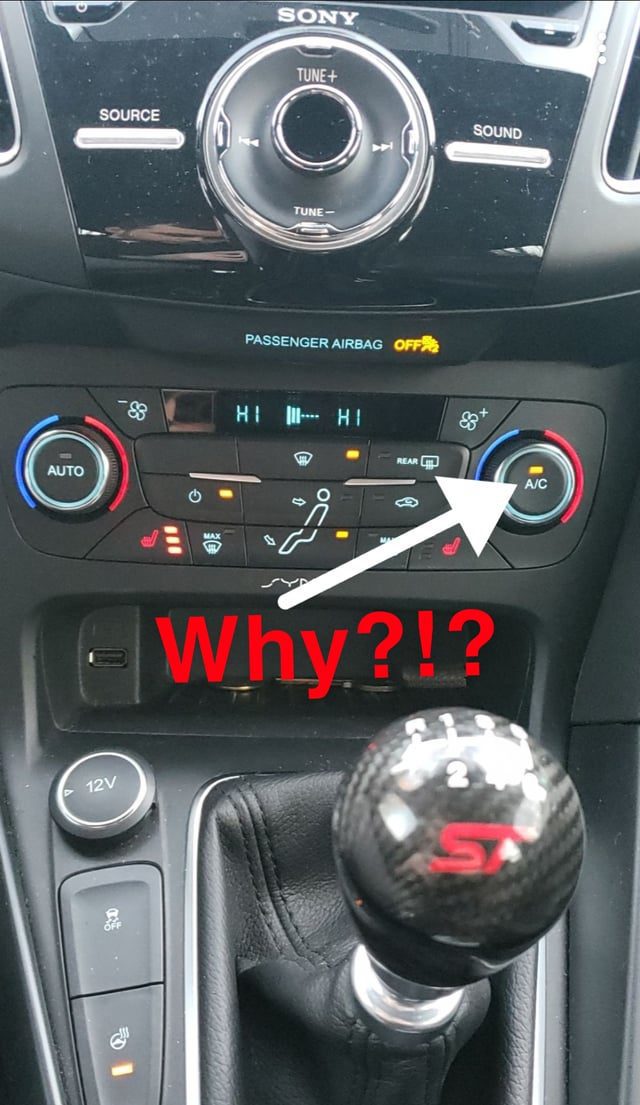Can a Car Accident Ruin Your Life? Discover the Life-Altering Effects
A car accident can significantly disrupt and negatively impact your life in various ways. It can cause physical injuries, financial burdens, emotional trauma, and even long-term disabilities, leading to a substantial deterioration in your overall well-being.
The consequences of a car accident extend beyond just the immediate aftermath, affecting your ability to work, enjoy daily activities, and maintain healthy relationships. From expensive medical bills and vehicle repairs to lost wages and psychological distress, the fallout from a car accident can be overwhelming, potentially altering the course of your life and requiring extensive support and rehabilitation to recover fully.
Understanding The Impact Of Car Accidents
Car accidents can have a devastating impact on one’s life, affecting not only physical health but also financial, emotional, and social well-being. From medical bills to long-term disabilities, the consequences of a car accident can be overwhelming, making it essential to understand the potential ruinous effects it can have on your life.
Car accidents can have devastating consequences. From physical injuries to mental and emotional trauma, as well as financial burdens, the impact of a car accident can be far-reaching. It’s important to understand these consequences to appreciate the serious nature of such accidents and to be better prepared to navigate through the aftermath.
Physical Injuries
One of the most immediate and obvious impacts of a car accident is the potential for physical injuries. These injuries can range from minor cuts and bruises to more severe and life-altering conditions such as broken bones, spinal cord injuries, or traumatic brain injuries. In some cases, the physical effects may be temporary, while in others, they can be long-lasting or even permanent.
Below is a table highlighting some common physical injuries resulting from car accidents:
| Type of Injury | Description |
|---|---|
| Whiplash | Neck injury caused by rapid back-and-forth movement of the head. |
| Bone Fractures | Broken bones, including arms, legs, ribs, and pelvis. |
| Spinal Cord Injury | Damage to the spinal cord, leading to paralysis or loss of sensation. |
| Head Trauma | Concussions, traumatic brain injuries, or internal bleeding in the brain. |
Mental And Emotional Trauma
Car accidents not only impact physical well-being but can also cause significant mental and emotional trauma. It’s not uncommon for individuals involved in accidents to experience a range of emotions such as fear, anxiety, anger, or depression. The psychological effects can manifest immediately after the accident, or they may develop over time, affecting the individual’s overall quality of life.
Some of the mental and emotional consequences of car accidents include:
- Post-Traumatic Stress Disorder (PTSD): Re-experiencing the trauma through flashbacks or nightmares.
- Anxiety and Panic Disorders: Persistent and excessive feelings of worry or fear.
- Depression: Overwhelming sadness, loss of interest or pleasure in activities.
- Phobias and Avoidance: Fear of driving or avoidance of situations related to the accident.
Financial Consequences
In addition to physical and mental impacts, car accidents can also lead to significant financial burdens. The cost of medical treatment, rehabilitation, and therapy can quickly add up, especially for those without adequate insurance coverage. Furthermore, if injuries prevent individuals from working, they may face a loss of income or even a complete inability to earn a living. These financial consequences can further compound the stress and challenges associated with recovering from a car accident.
Some of the financial consequences victims may face include:
- Medical Expenses: Hospital bills, surgeries, medications, and ongoing treatments.
- Lost Wages: Income lost due to missed work during recovery or permanent disability.
- Property Damage: Repair or replacement costs for damaged vehicles and belongings.
- Legal Fees: Hiring an attorney for legal representation, if necessary.
- Insurance Premiums: Potential increases in auto insurance rates following an accident.
Understanding the impact of car accidents, from physical injuries and mental trauma to the financial burden, can help individuals affected seek the necessary support and resources. If you or someone you know has been involved in a car accident, it’s essential to consult with legal and medical professionals to ensure the best possible outcome and to help minimize the long-term consequences.
Long-term Effects On Personal Life
Experiencing a car accident can be a traumatic event that can have long-term consequences on various aspects of your personal life. Not only can it lead to physical injuries and financial burdens, but it can also cause significant emotional and psychological distress. In this article, we will explore some of the long-term effects of a car accident on your personal life, focusing on three key areas: loss of mobility and independence, chronic pain and disabilities, and the effect on relationships and social life.
Loss Of Mobility And Independence
The aftermath of a car accident can often result in a loss of mobility and independence. Depending on the severity of the injuries sustained, you may find yourself facing temporary or permanent limitations in your ability to move and carry out daily activities. This loss of mobility can have a profound impact on your independence, making even simple tasks challenging or even impossible to perform.
Furthermore, the physical rehabilitation process following a car accident can be an arduous journey that requires significant time, effort, and patience. Physical therapy sessions, surgeries, and long periods of rest and recovery can consume a substantial amount of your time and may prevent you from engaging in activities you once enjoyed.
Chronic Pain And Disabilities
Car accidents can also result in chronic pain and disabilities that can persist long after the accident itself. Whether it’s back pain, neck pain, nerve damage, or joint injuries, the ongoing physical discomfort can drastically diminish your quality of life. The constant pain and discomfort can hinder your ability to perform daily tasks, impair your concentration, and limit your overall productivity.
In addition to chronic pain, car accidents can also lead to permanent disabilities. These disabilities can vary, ranging from mobility impairments and paralysis to cognitive disabilities and mental health conditions such as post-traumatic stress disorder (PTSD). The presence of a disability can significantly impact your self-esteem, confidence, and emotional well-being, making it challenging to navigate through life’s challenges.
Effect On Relationships And Social Life
The effects of a car accident can extend beyond physical and emotional well-being, often causing disturbances in relationships and social life. Dealing with the aftermath of a car accident may require you to rely on the support of your loved ones due to your physical limitations or emotional distress. The strain placed on relationships can be significant, often leading to feelings of frustration, resentment, and dependency.
Additionally, the restrictions imposed by the injuries sustained in a car accident can isolate you from your social circle and limit your ability to participate in social activities. You may find it challenging to attend social events, go out with friends, or engage in hobbies you once enjoyed. The resulting isolation can lead to feelings of loneliness, depression, and a sense of disconnection from the world around you.
In conclusion, a car accident can have profound long-term effects on your personal life. From the loss of mobility and independence to chronic pain and disabilities, and the impact on relationships and social life, it is crucial to recognize and address these consequences. Seeking proper medical care, emotional support, and rehabilitation can play a vital role in mitigating the long-term effects and facilitating the recovery process.
Road To Recovery And Seeking Compensation
Being involved in a car accident can be a life-altering event. Not only can it cause physical injuries and emotional trauma, but it can also lead to financial burdens and legal complexities. In the aftermath of a car accident, finding the road to recovery and seeking the compensation you deserve becomes paramount. This article will delve into three crucial aspects of this journey: medical treatment and rehabilitation, legal considerations and insurance claims, as well as support networks and coping mechanisms.
Medical Treatment And Rehabilitation
One of the first steps on the road to recovery after a car accident is seeking prompt medical treatment. Even if you feel you have escaped unscathed, it is crucial to get a thorough examination by a healthcare professional. This will ensure that any hidden injuries or underlying conditions are detected early on.
Once a diagnosis has been made, a tailored treatment plan can be developed. Depending on the severity of your injuries, this may involve a combination of medications, physical therapy, surgeries, or other medical interventions. Engaging in regular physical therapy sessions can aid in the recovery process, helping to rebuild strength, improve mobility, and minimize any long-term effects of the accident.
Legal Considerations And Insurance Claims
When it comes to seeking compensation for the damages caused by a car accident, understanding the legal considerations and navigating the insurance claims process becomes crucial. It is advisable to consult with an experienced personal injury attorney who specializes in car accident cases. They can guide you through the legal complexities, ensuring your rights are protected and maximizing your chances of receiving fair compensation.
Before filing an insurance claim, it is essential to gather all relevant information regarding the accident. This includes obtaining the police report, collecting witness statements, and documenting photographs of the scene and your injuries. Cooperating fully with your insurance provider during the claims process is key, providing them with accurate and detailed information to support your case.
| Key Points: |
|---|
| – Seek prompt medical treatment and follow a tailored rehabilitation plan |
| – Consult with a personal injury attorney to navigate the legal complexities |
| – Gather all necessary information before filing an insurance claim |
| – Cooperate fully with your insurance provider and provide accurate information |
Support Networks And Coping Mechanisms
During the challenging road to recovery, building a strong support network and employing coping mechanisms can make a significant difference. Surround yourself with family and friends who can offer emotional support and practical assistance. Talking openly about your experiences and emotions can help alleviate stress and promote healing.
Additionally, consider seeking professional counseling or therapy to process any trauma or anxiety stemming from the accident. These trained professionals can provide guidance and coping strategies to help you navigate the emotional aftermath.
- Build a support network of family and friends who can provide emotional and practical assistance.
- Talk openly about your experiences and emotions to alleviate stress.
- Consider seeking professional counseling or therapy to process trauma and anxiety.
Conclusion
A car accident has the potential to completely disrupt and alter your life. From physical injuries to psychological trauma, the aftermath of an accident can be overwhelming. It can lead to financial burdens, strain relationships, and affect your overall well-being.
It is crucial to seek legal guidance, medical support, and any necessary therapy to recover and regain control of your life. Remember, prioritizing your physical and mental health should be your top priority after a car accident.







